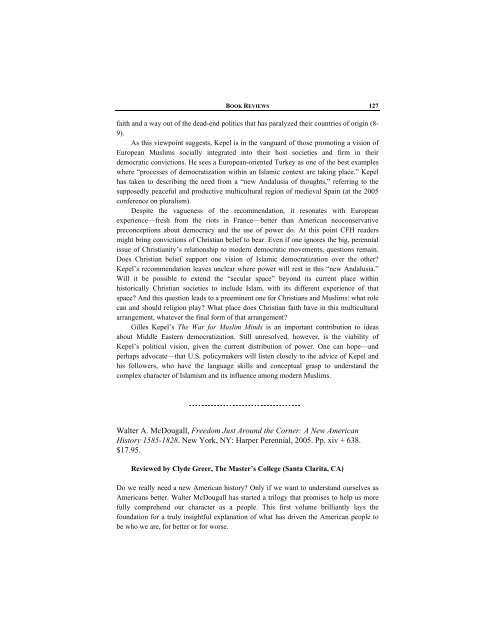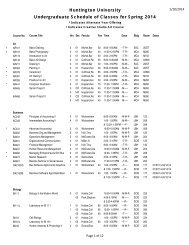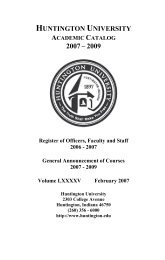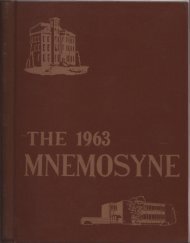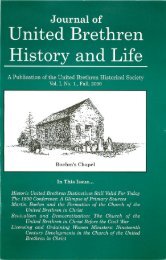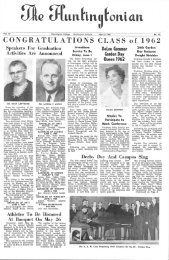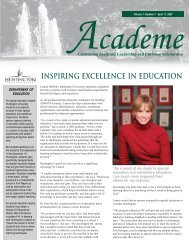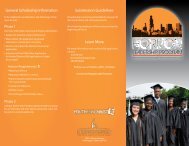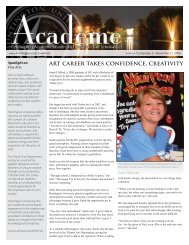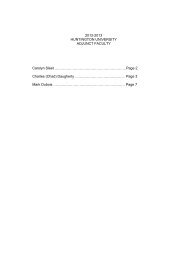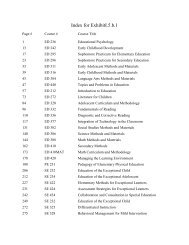Gillian Clark, Christianity and Roman Society - Huntington University
Gillian Clark, Christianity and Roman Society - Huntington University
Gillian Clark, Christianity and Roman Society - Huntington University
You also want an ePaper? Increase the reach of your titles
YUMPU automatically turns print PDFs into web optimized ePapers that Google loves.
BOOK REVIEWS 127<br />
faith <strong>and</strong> a way out of the dead-end politics that has paralyzed their countries of origin (8-<br />
9).<br />
As this viewpoint suggests, Kepel is in the vanguard of those promoting a vision of<br />
European Muslims socially integrated into their host societies <strong>and</strong> firm in their<br />
democratic convictions. He sees a European-oriented Turkey as one of the best examples<br />
where “processes of democratization within an Islamic context are taking place.” Kepel<br />
has taken to describing the need from a “new Andalusia of thoughts,” referring to the<br />
supposedly peaceful <strong>and</strong> productive multicultural region of medieval Spain (at the 2005<br />
conference on pluralism).<br />
Despite the vagueness of the recommendation, it resonates with European<br />
experience—fresh from the riots in France—better than American neoconservative<br />
preconceptions about democracy <strong>and</strong> the use of power do. At this point CFH readers<br />
might bring convictions of Christian belief to bear. Even if one ignores the big, perennial<br />
issue of <strong>Christianity</strong>’s relationship to modern democratic movements, questions remain.<br />
Does Christian belief support one vision of Islamic democratization over the other?<br />
Kepel’s recommendation leaves unclear where power will rest in this “new Andalusia.”<br />
Will it be possible to extend the “secular space” beyond its current place within<br />
historically Christian societies to include Islam, with its different experience of that<br />
space? And this question leads to a preeminent one for Christians <strong>and</strong> Muslims: what role<br />
can <strong>and</strong> should religion play? What place does Christian faith have in this multicultural<br />
arrangement, whatever the final form of that arrangement?<br />
Gilles Kepel’s The War for Muslim Minds is an important contribution to ideas<br />
about Middle Eastern democratization. Still unresolved, however, is the viability of<br />
Kepel’s political vision, given the current distribution of power. One can hope—<strong>and</strong><br />
perhaps advocate—that U.S. policymakers will listen closely to the advice of Kepel <strong>and</strong><br />
his followers, who have the language skills <strong>and</strong> conceptual grasp to underst<strong>and</strong> the<br />
complex character of Islamism <strong>and</strong> its influence among modern Muslims.<br />
Walter A. McDougall, Freedom Just Around the Corner: A New American<br />
History 1585-1828. New York, NY: Harper Perennial, 2005. Pp. xiv + 638.<br />
$17.95.<br />
Reviewed by Clyde Greer, The Master’s College (Santa Clarita, CA)<br />
Do we really need a new American history? Only if we want to underst<strong>and</strong> ourselves as<br />
Americans better. Walter McDougall has started a trilogy that promises to help us more<br />
fully comprehend our character as a people. This first volume brilliantly lays the<br />
foundation for a truly insightful explanation of what has driven the American people to<br />
be who we are, for better or for worse.


